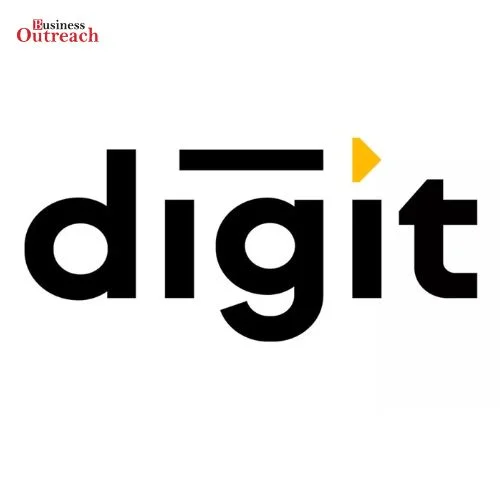In November, the electric car and space tycoon donated $5.7 billion in Tesla Inc. stock to charity over the course of ten days.
Elon Musk appears to be on his way to becoming a philanthropist on par with his wealthy counterparts. In November, the electric car and space tycoon donated $5.7 billion in Tesla Inc. shares to charity, far more than he’s given away through his eponymous foundation in the two decades since it was created. It’s unclear where that donation will go, but it’s simply another indicator that the world’s wealthiest person is taking philanthropy more seriously.
Musk’s plan to donate more than 5 million shares in Tesla was revealed in a regulatory filing Monday night, and it comes on the heels of some of his largest-ever philanthropic gestures — but nothing on the scale of billions of dollars. It would also aid in the reduction of what he dubbed the “largest tax bill in American history.”
The Musk Foundation has given eight-figure grants to the municipal and local school system near his South Texas spaceport, as well as a $100 million ready-made competition to combat climate change and millions of dollars to a pair of Covid-19 researchers in the last few years.
Almost all of the grantees have been in contact with Igor Kurganov, a professional poker player turned philanthropist whom Musk just hired to keep in touch with grantees and assess their offers.
Altruism that works
Kurganov, who has earned over $18 million in poker, is involved in the field of so-called effective altruism, a philanthropic and philosophical movement that aims to have the greatest influence by spending money wisely to solve issues. Kurganov is one of the co-founders of Raising for Effective Giving, a group of poker players who promote “very cost-effective organisations.” He’s also a consultant for the Centre for Effective Altruism’s Forethought Foundation.
Kurganov has not responded to calls or emails. Musk’s family office managing director Jared Birchall and Tesla’s senior manager of stock administration Aaron Beckman did not reply to requests for comment.
According to Alixandra Barasch, an associate professor of marketing at New York University who has studied the movement, if Musk’s foundation is moving to effective altruism, it hasn’t shown yet.
Musk doesn’t make his donations public on a regular basis, and tax filings that do contain such disclosures take years to arrive. Musk recently donated $10 million to Brownsville, Texas, which is close to where SpaceX is situated, to help rebuild its downtown. That money has so far been used to fund a grant programme for local property owners, lighting improvements, and murals.
Effective altruism is primarily concerned with saving lives, and “murals don’t do that much good in terms of how it’s assessed and characterised in the movement,” according to Barasch.
Other gifts from Musk, such as $20 million for Cameron County schools, $100 million for the XPrize Carbon Removal competition, and $5 million for Khan Academy, lack the emphasis that effective altruism usually has, according to Barasch. But, she added, scale matters, and if Musk’s foundation is affected by the philosophy, his donations might skyrocket.
“When I look at those figures, I think to myself, ‘Holy moly, there’s millions of dollars here,’ and ‘Wow, that’s a lot of money,'” she says “According to Barasch. “However, it’s nothing in comparison to what he’s worth.””
According to the Bloomberg Billionaires Index, Musk has a personal fortune of $227 billion dollars. The $5.7 billion in Tesla stock gift could be an indication that he’s speeding up his charitable giving, but it also doesn’t indicate he’s contributed anything to charity yet.
According to Brian Mittendorf, an Ohio State University professor who researches nonprofits, the money most certainly went to Musk’s foundation. Given Musk’s previous usage of DAFs, the public may never know where much of the money is going until he chooses to broadcast it on Twitter or the Musk Foundation’s website, he said.
‘Guessing Game’ is a game where you have to guess what is going to happen next.
“We shouldn’t have to play this guessing game,” says the narrator, “said Benjamin Soskis, senior research associate at the Urban Institute’s Center on Nonprofits and Philanthropy. “Because the size is so vast, it’s a matter of public interest where the money is going.”
Musk’s November gifting spree coincided with his Twitter spats with politicians over his taxes. A significant donation to charity would help him pay off his debt to the government. Tesla’s CEO tweeted days before completing a sequence of stock sales for more than $16 billion, the majority of which was to finance the exercise of almost 23 million options, that he would pay more than $11 billion in taxes for the year.
Musk also said he’d sell the stock if the UN could prove that $6 billion would help end world hunger in the weeks preceding up to the gift when the head of the UN’s World Food Programme called on billionaires like Musk to “stand up.”
Musk’s proclivity for being provocative, as well as his massive gift announcements, have made it difficult for the general public to decipher his intentions. Soskis said it’s unclear what Kurganov’s employment and the recent $5.7 billion pledge signify for Musk’s philanthropic future.
“Your guess is as good as mine,” says the narrator “Soskis speculated on the recipient of Musk’s present. “There isn’t an obvious pattern in what he’s done.””















